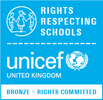SMSC
Spiritual, Moral, Social and Cultural (SMSC) development is the over-arching umbrella that encompasses personal development across our whole school curriculum. We believe that our unique approach to SMSC has helped us to develop a well-rounded, holistic and meaningful curriculum for all of our children. Ofsted puts SMSC ‘at the heart’ of school development. It requires schools to think about the kind of people we aspire to be, the kind of world we aspire to create, and the kind of education we aspire to provide.
Spiritual
Spiritual development relates to that aspect of inner life through which our children acquire insights into their personal existence that are of enduring worth. Spiritual is not synonymous with religious; all areas of the curriculum may contribute to pupils' spiritual development. It is about the development of a sense of identity, self-worth, personal insight, meaning and purpose. Children are encouraged to explore beliefs and experiences, respect faiths, feelings and values.
Pupils’ spiritual development is shown by their:
- ability to be reflective about their own beliefs, religious or otherwise, that inform their perspective on life and their interest in and respect for different people’s faiths, feelings and values
- sense of enjoyment and fascination in learning about themselves, others and the world around them
- use of imagination and creativity in their learning willingness to reflect on their experiences.
School Inspection Handbook from September 2015
Moral
Moral development is about building a framework of moral values for our children, which regulates their personal behaviour. It is the development of our understanding of society’s shared and agreed values; including an understanding that there are contentious issues where there is disagreement, and that society’s values change. Children learn about recognising right and wrong, respecting the law, understanding consequences, investigating moral and ethical issues and how to offer reasoned views.
Pupils’ moral development is shown by their:
- ability to recognise the difference between right and wrong and to readily apply this understanding in their own lives, recognise legal boundaries and, in so doing, respect the civil and criminal law of England
- understanding of the consequences of their behaviour and actions
- interest in investigating and offering reasoned views about moral and ethical issues and ability to understand and appreciate the viewpoints of others on these issues.
School Inspection Handbook from September 2015
Social
Social development is about helping our young people to develop and use a range of social skills which enable them to work effectively with each other and to participate successfully in the community as a whole. It is about the development of the skills and personal qualities necessary for living and working together; and functioning effectively in a multi-racial, multi-cultural society.
Pupils’ social development is shown by their:
- use of a range of social skills in different contexts, for example working and socialising with other pupils, including those from different religious, ethnic and socio-economic backgrounds
- willingness to participate in a variety of communities and social settings, including by volunteering, cooperating well with others and being able to resolve conflicts effectively
- acceptance and engagement with the fundamental British values of democracy, the rule of law, individual liberty and mutual respect and tolerance of those with different faiths and beliefs; they develop and demonstrate skills and attitudes that will allow them to participate fully in and contribute positively to life in modern Britain.
School Inspection Handbook from September 2015
Cultural
Cultural development is about our children understanding and appreciating their own culture, other cultures in our area and in the UK as a whole. Children are encouraged to understand, accept, respect and celebrate diversity.
Pupils’ cultural development is shown by their:
- understanding and appreciation of the wide range of cultural influences that have shaped their own heritage and those of others
- understanding and appreciation of the range of different cultures within school and further afield as an essential element of their preparation for life in modern Britain
- knowledge of Britain’s democratic parliamentary system and its central role in shaping our history and values, and in continuing to develop Britain
- willingness to participate in and respond positively to artistic, musical, sporting and cultural opportunities
- interest in exploring, improving understanding of and showing respect for different faiths and cultural diversity and the extent to which they understand, accept, respect and celebrate diversity, as shown by their tolerance and attitudes towards different religious, ethnic and socio-economic groups in the local, national and global communities.
School Inspection Handbook from September 2015
SMSC Policy SMSC, RSE and British Values Curriculum Overview






